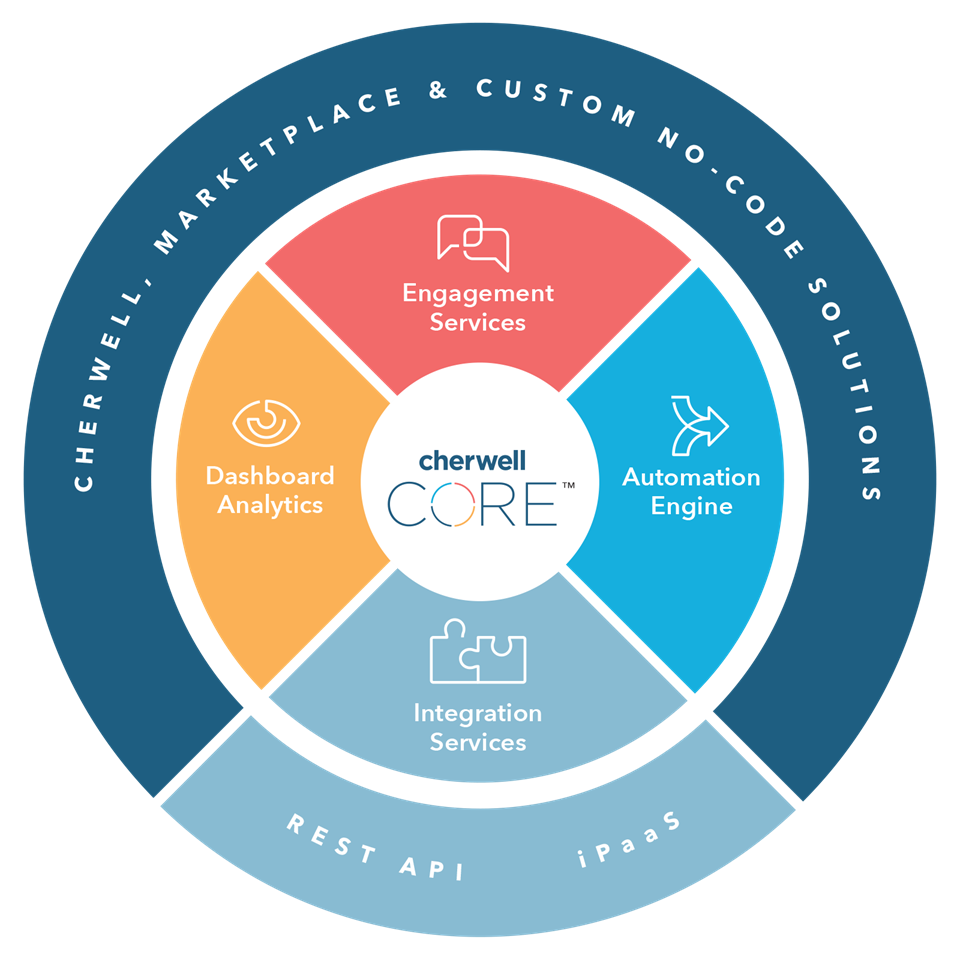What is Cherwell Service Management?
Cherwell® Service Management (CSM) helps teams implement, automate, and upgrade service and support processes. CSM includes the Cherwell Core platform and OOTB content that provides predefined functionality and designs.
CSM supports process customization that allows departments to tailor the solution according to their native workflow processes. CSM provides users with multiple ITIL-verified methods such as incident, problem, request, and event management. It also enables users to leverage ITIL service transition processes including change, configuration, and release management.
Cherwell Core is a purpose-built no-code development and delivery platform that serves as the logical foundation for Cherwell's ITSM solution; Cherwell ESM (enterprise service management) solutions such as HR and Facilities; and custom-built workflow applications. The platform is designed to support any combination of pre-built and custom-built applications to meet an organization's service management requirements.
You can request a demo of CSM to find out more.
- Engagement Services: In addition to client applications (CSM Desktop Client and CSM Browser Client), CSM provides multiple avenues for customer engagement. Customers can call or visit a service desk, access the portal via laptop or mobile device, send an email, tell the optional Cherwell Virtual Agent (CVA) what's happening, or open an incident in Slack.
- Automation Engine: Automating workflows is the heart of the Cherwell CORE. Cherwell provides process workflows and supporting capabilities for ITSM, HR, Facilities, PPM, Security and other solutions that run on the common platform.
- Integration Services: CSM provides several ways to import data or perform actions based on events in an external tool or CSM. Options range from lightweight with no programming experience required to more complex, such as the Cherwell® REST API.
- Dashboard Analytics: Dashboards enable users to spot trends, eliminate bottlenecks, and comply with service delivery guidelines. Comprehensive reports help highlight key accomplishments, quantify outcomes, and identify areas for improvement.
